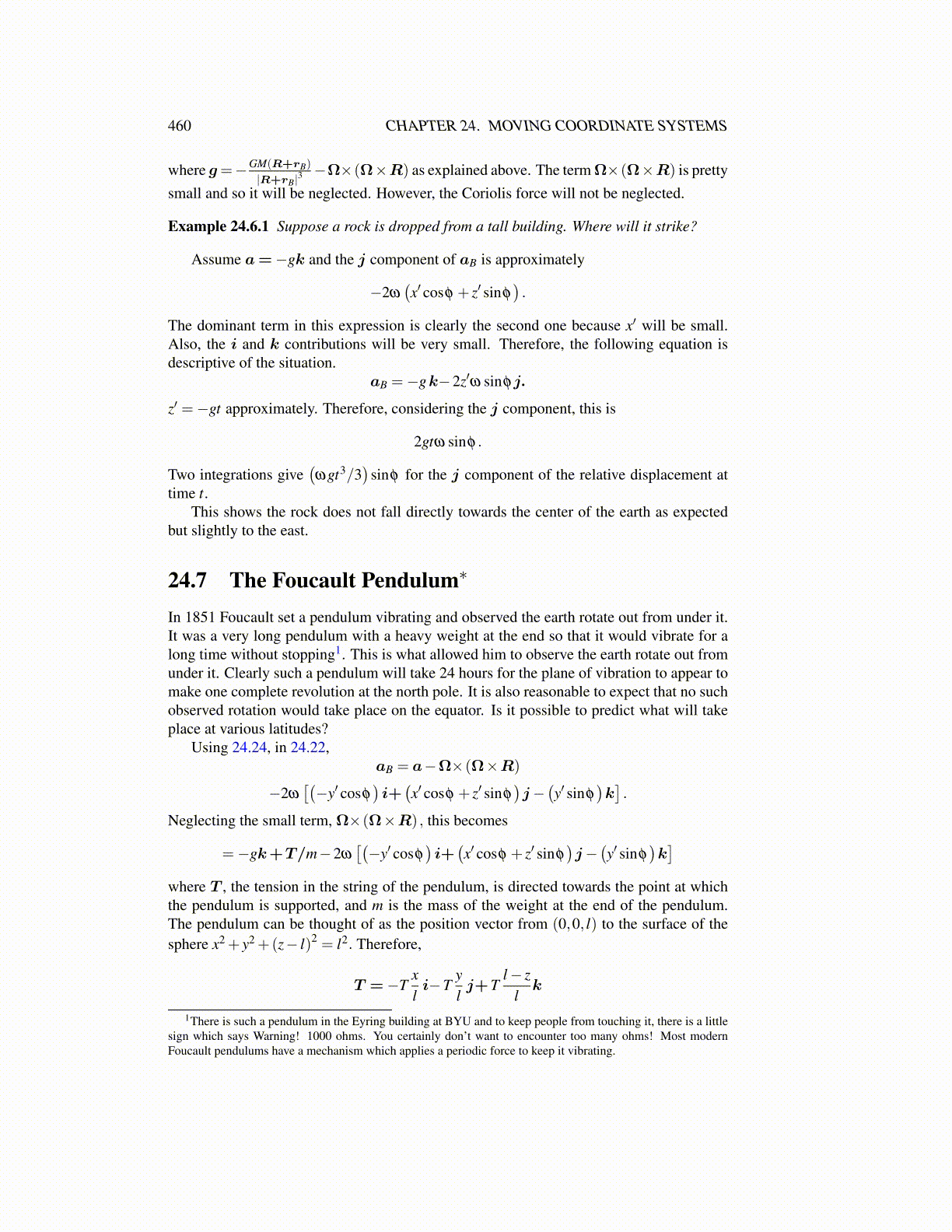
460 CHAPTER 24. MOVING COORDINATE SYSTEMS
where g=−GM(R+rB)
|R+rB|3−Ω×(Ω×R) as explained above. The term Ω×(Ω×R) is pretty
small and so it will be neglected. However, the Coriolis force will not be neglected.
Example 24.6.1 Suppose a rock is dropped from a tall building. Where will it strike?
Assume a=−gk and the j component of aB is approximately
−2ω(x′ cosφ + z′ sinφ
).
The dominant term in this expression is clearly the second one because x′ will be small.Also, the i and k contributions will be very small. Therefore, the following equation isdescriptive of the situation.
aB =−gk−2z′ω sinφj.
z′ =−gt approximately. Therefore, considering the j component, this is
2gtω sinφ .
Two integrations give(ωgt3/3
)sinφ for the j component of the relative displacement at
time t.This shows the rock does not fall directly towards the center of the earth as expected
but slightly to the east.
24.7 The Foucault Pendulum∗
In 1851 Foucault set a pendulum vibrating and observed the earth rotate out from under it.It was a very long pendulum with a heavy weight at the end so that it would vibrate for along time without stopping1. This is what allowed him to observe the earth rotate out fromunder it. Clearly such a pendulum will take 24 hours for the plane of vibration to appear tomake one complete revolution at the north pole. It is also reasonable to expect that no suchobserved rotation would take place on the equator. Is it possible to predict what will takeplace at various latitudes?
Using 24.24, in 24.22,aB = a−Ω×(Ω×R)
−2ω[(−y′ cosφ
)i+(x′ cosφ + z′ sinφ
)j−
(y′ sinφ
)k].
Neglecting the small term, Ω×(Ω×R) , this becomes
=−gk+T/m−2ω[(−y′ cosφ
)i+(x′ cosφ + z′ sinφ
)j−
(y′ sinφ
)k]
where T , the tension in the string of the pendulum, is directed towards the point at whichthe pendulum is supported, and m is the mass of the weight at the end of the pendulum.The pendulum can be thought of as the position vector from (0,0, l) to the surface of thesphere x2 + y2 +(z− l)2 = l2. Therefore,
T =−Txli−T
ylj+T
l− zl
k
1There is such a pendulum in the Eyring building at BYU and to keep people from touching it, there is a littlesign which says Warning! 1000 ohms. You certainly don’t want to encounter too many ohms! Most modernFoucault pendulums have a mechanism which applies a periodic force to keep it vibrating.